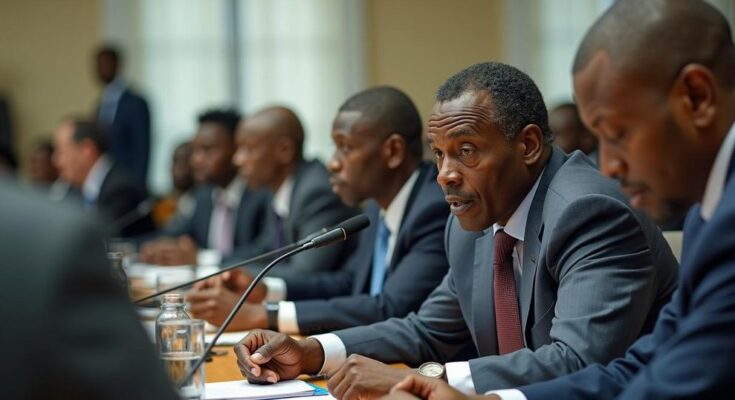On October 11, the UN Human Rights Council extended its mandate for international experts in the DRC due to rising human rights abuses and government repression. The resolution calls for active monitoring and accountability for severe violations, particularly regarding sexual violence. Reports indicate an alarming escalation of violence and humanitarian crises, necessitating urgent international intervention.
On October 11, the United Nations Human Rights Council took a significant step by extending the mandate of its international experts focused on the Democratic Republic of Congo (DRC) for another year. This decision comes amid a backdrop of escalating human rights violations and a humanitarian crisis that deepens each day. The DRC is witnessing an alarming crackdown on dissent, where government forces target opposition members, journalists, activists, and any voice that dares to criticize the regime. In a resolution adopted by consensus, the council mandated the UN Human Rights Office to monitor human rights conditions, report findings, and assist Congolese authorities in ensuring accountability for severe abuses, especially concerning conflict-related sexual violence. This mission gained urgency as, in their recent report to the council on October 8, the UN experts highlighted the stagnation in achieving justice for victims of the protracted armed conflict in eastern DRC. They pointed out the ramifications of the withdrawal of MONUSCO, the UN peacekeeping force, from South Kivu province. This maneuver has inadvertently created a security vacuum, intensifying the peril for civilians trapped in the crossfire of violence. Furthermore, Human Rights Watch revealed harrowing accounts of the Rwandan army and the M23 armed group, backed by Rwanda, indiscriminately shelling displacement camps in the Goma vicinity throughout 2024. Concurrently, the Congolese military and allied militias exacerbated the plight of displaced individuals by deploying artillery near their camps, leading to a spike in violence, including murder, sexual assault, and arbitrary detention. There has been a disturbing trend of obstructed aid, complicating an already dire humanitarian situation. As sexual violence escalates, the UN special representative on this issue underscored the imperative need for international intervention, candidly stating, ” it is imperative for the international community to act now in support of … survivors.” The Congolese government faces a crucial call to action: investigate and prosecute those behind egregious crimes, guarantee health services for survivors of gender-based violence, and implement robust measures to shield civilians from further harm. Moreover, all parties involved must ensure unobstructed access to humanitarian aid and independent oversight of the situation. If the DRC persists in its troubling trajectory with no meaningful actions to bridge the accountability gap, the UN is poised to augment its strategy to confront impunity for these grave atrocities.
The Democratic Republic of Congo has been embroiled in conflict for decades, characterized by severe human rights abuses and a chronic lack of security. With the UN peacekeeping forces withdrawing, this tenuous situation leaves civilians vulnerable, raising alarm bells among international observers and human rights advocates. The extension of the UN mandate reflects heightened concern over the government’s oppressive actions against dissenters, necessitating ongoing monitoring and intervention to prevent further deterioration of human rights in the country.
The extension of the UN experts’ mandate highlights the urgent need to address the escalating human rights abuses in the Democratic Republic of Congo. With violence deepening and the government intensifying its crackdown on dissent, the international community must rally to support victims and hold perpetrators accountable. The call for timely investigations, aid access, and protection for civilians is more crucial than ever as the DRC stands at a perilous crossroads in its quest for justice and stability.
Original Source: www.hrw.org



